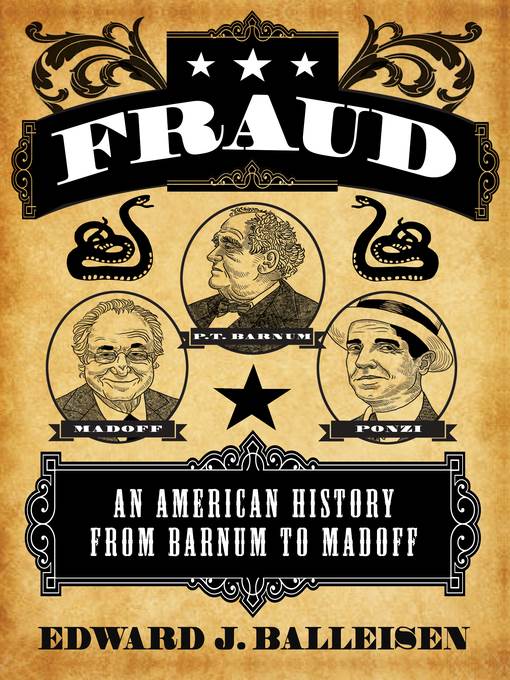
Fraud
An American History from Barnum to Madoff
کتاب های مرتبط
- اطلاعات
- نقد و بررسی
- دیدگاه کاربران
نقد و بررسی

December 19, 2016
Balleisen (Navigating Failure), associate professor of history at Duke University, explores America’s ambivalent attitude toward con-artistry in this colorful survey history of business fraud and the fitful attempts to suppress it. In American fraud’s 19th-century golden age, adulterated commodities, shoddy manufactures, counterfeit bank-notes, inflated stocks, Barnum-esque hoaxes, predatory sales contracts, and Ponzi schemes galore were mainstays of commerce. More recently, Balleisen reveals that the methods have kept pace with sociopolitical changes, as evidenced by Medicare fraud, credit default swaps, and more Ponzi schemes. He counterpoints the nature of the swindles with the growing formal—and informal—“anti-fraud state” of postal inspectors, government financial and trade regulators, criminal prosecutors, class-action lawyers, and muckraking reporters (who sometimes colluded with stock scams instead of exposing them). Balleisen shows how anti-fraud regulations were perennially weakened by Americans’ grudging admiration for clever con-men, industry lobbying, the doctrine of caveat emptor (the notion that buyers are responsible for avoiding scams), and fears that cracking down too harshly on fraudulent promises might dampen the investor enthusiasm powering the economy. Balleisen’s lucid, engagingly written mix of institutional and legal history, behavioral economics, and entertaining anecdotes illuminates this land of bilk and money. Illus.

January 1, 2017
A broad-ranging study of the big swindle in American life over the last couple of centuries.Americans, P.T. Barnum divined, have a deeply ingrained habit of needing "to cast suspicious eyes on what was before them"--but then "to be taken in regardless." There is something in our character, something at once aspirational and gullible, that makes the nation so avid to embrace the likes of a Charles Ponzi, a Bernie Madoff, and any number of religious and political figures past and present. Balleisen (History and Public Policy/Duke Univ.; Navigating Failure: Bankruptcy and Commercial Society in Antebellum America, 2001, etc.) casts a gimlet eye on the passing parade of hucksters and charlatans, peppering a narrative long on theory with juicy asides that build toward a comprehensive catalog of "Old Swindles in New Jargon"--e.g., the ever popular pyramid scheme. That fundamentally undemocratic bit of fraud--I got mine, and it doesn't matter whether you get yours--is built on an ethos of wishful thinking and anxiety alike, for Americans have always had the haunting fear of sliding backward into poverty. Ranging among the disciplines of history, economics, and psychology, Balleisen constructs a sturdy narrative of the many ways in which we have fallen prey to the swindler, and continue to do so, as well as of how American society and its institutions have tried to build protections against the con. But these protections eventually run up against accusations of violating "longstanding principles of due process," since the bigger the con, the more lawyers arrayed behind it. It's in looking at these regulatory mechanisms that the narrative sometimes bogs down in detail, but it all adds up to a useful, if perhaps accidental, operating manual to living in America, a land in which the great novelist Herman Melville pointedly followed up his vast novel Moby-Dick with the savagely satirical The Confidence-Man. A touch arid at times, but overall a fascinating, illuminating look at bunko and the social conditions under which its practitioners operate--and flourish.
COPYRIGHT(2017) Kirkus Reviews, ALL RIGHTS RESERVED.

























دیدگاه کاربران